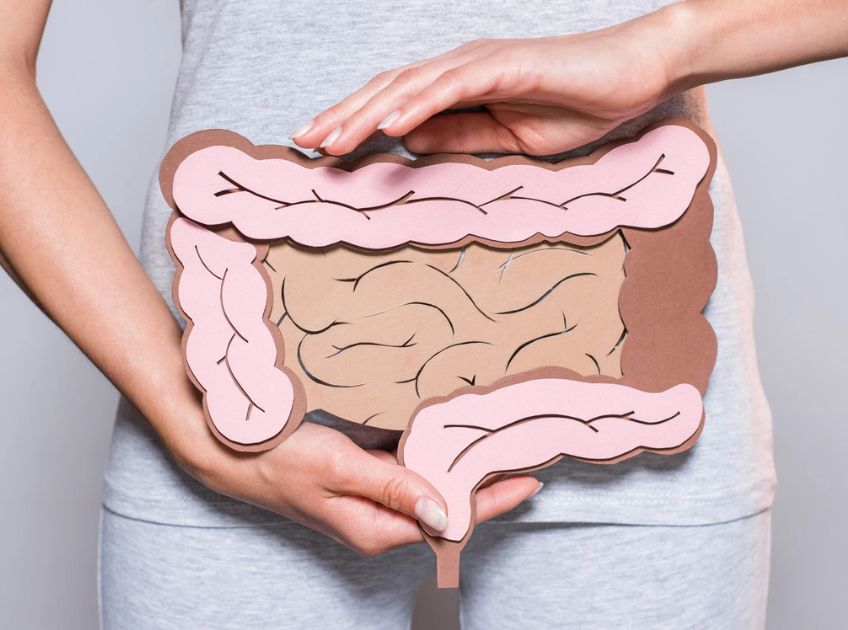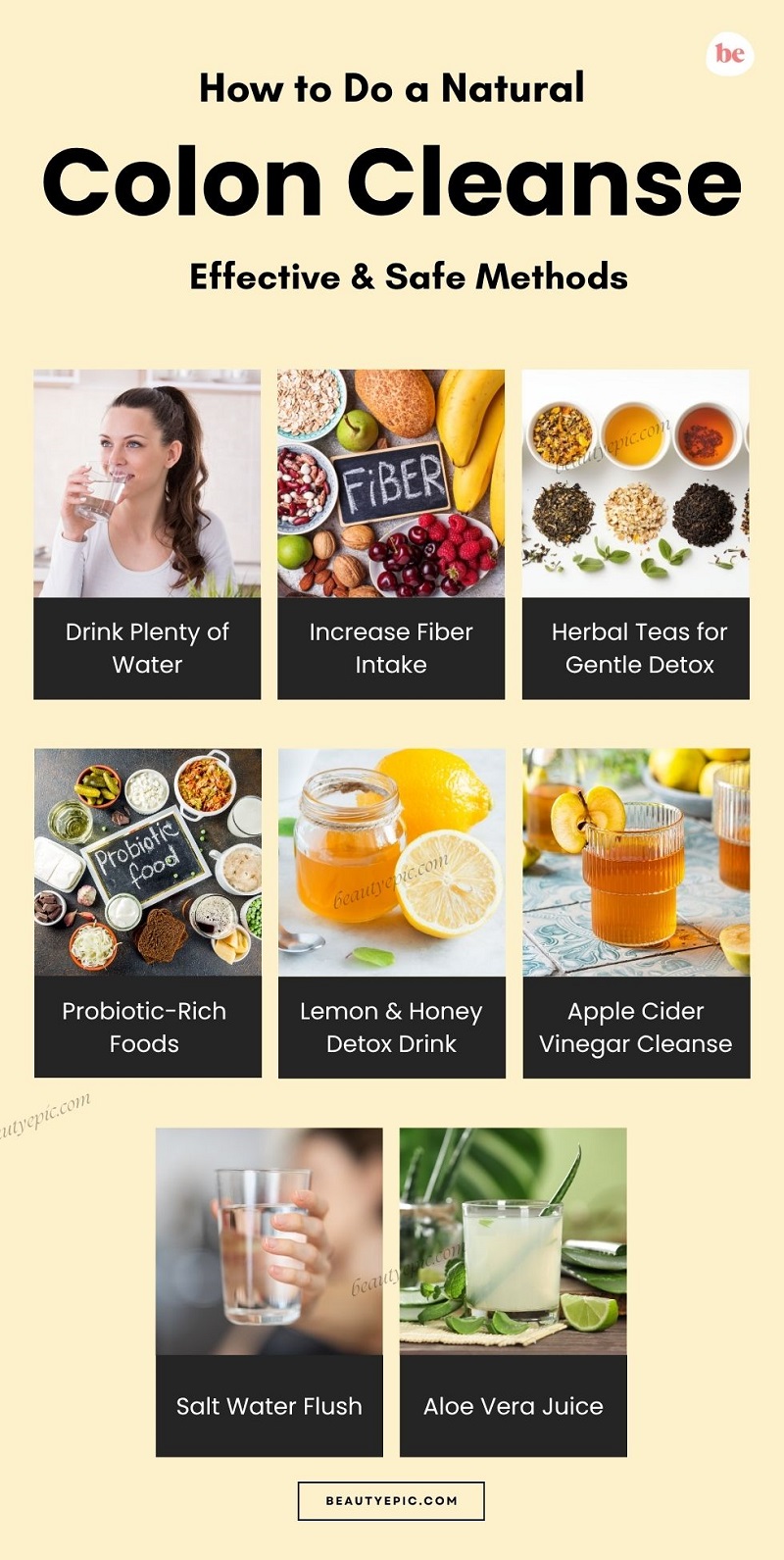
Important: This article is for informational purposes only. Please read our full disclaimer for more details.
Your colon plays a vital role in digestion by absorbing nutrients and flushing out waste. But when toxins, processed foods, and an unhealthy lifestyle take a toll, your digestive system can slow down, leading to bloating, constipation, fatigue, and poor gut health. A natural colon cleanse can help reboot your digestive system, remove waste buildup, and improve overall wellness.
In this article, we’ll cover why colon cleansing is beneficial, explore eight safe and natural methods, share scientific insights, and answer common questions to help you do it safely at home.
Why Consider a Natural Colon Cleanse?
A healthy colon is essential for proper digestion and toxin elimination. However, sedentary lifestyles, low-fiber diets, processed foods, and dehydration can cause waste buildup and slow bowel movements. This can lead to:
- Digestive discomfort and bloating
- Fatigue and sluggishness
- Skin issues caused by toxin buildup
- Reduced nutrient absorption
A natural colon cleanse can:
- Flush out toxins and waste
- Support gut-friendly bacteria
- Boost metabolism and energy levels
- Improve overall digestive health
🔍 Scientific Insight: A study published in the Journal of Alternative and Complementary Medicine suggests that natural cleansing methods, when paired with a high-fiber diet, may improve gut health and bowel regularity (1).
8 Safe & Natural Ways to Cleanse Your Colon at Home
1. Drink Plenty of Water
Hydration is one of the simplest and safest ways to cleanse your colon naturally. Water softens stool, improves bowel movements, and flushes out toxins.
- Aim for 8–10 glasses daily.
- Try warm lemon water in the morning for an added detox boost.
2. Increase Fiber Intake
Fiber acts like a broom for your digestive system, sweeping away waste and promoting regularity.
- Eat whole grains, fruits, vegetables, beans, and nuts
- Soluble fiber absorbs toxins, while insoluble fiber improves stool bulk
🔍 Scientific Insight: Research in the American Journal of Clinical Nutrition highlights that high-fiber diets reduce colon inflammation and improve gut microbiome balance (2).
3. Herbal Teas for Gentle Detox
Certain herbal teas act as natural laxatives and soothe the digestive tract:
- Peppermint tea for easing bloating
- Ginger tea to improve digestion
- Senna tea for occasional constipation (use sparingly)
4. Probiotic-Rich Foods
Your colon thrives when healthy bacteria flourish. Probiotics restore gut balance and improve digestion.
Include yogurt, kefir, sauerkraut, kimchi, and kombucha in your diet
🔍 Scientific Insight: A study in the World Journal of Gastroenterology found that probiotics enhance bowel regularity and reduce harmful bacteria in the colon (3).
5. Lemon and Honey Detox Drink
Lemon acts as a natural antioxidant, and honey has antimicrobial properties. Together, they make a powerful cleansing drink.
- Mix warm water, half a lemon, and 1 teaspoon of honey
- Drink on an empty stomach for the best results
6. Apple Cider Vinegar Cleanse
Apple cider vinegar (ACV) improves digestion, boosts gut-friendly bacteria, and helps detoxify the colon.
- Mix 1 tablespoon of ACV with a glass of water
- Drink once daily before meals
7. Salt Water Flush
A saltwater flush is a quick way to stimulate bowel movements.
- Mix 2 teaspoons of sea salt in a glass of warm water
- Drink it on an empty stomach in the morning
⚠️ Caution: Use occasionally and consult a doctor if you have any underlying conditions.
8. Aloe Vera Juice
Aloe vera contains natural enzymes that improve digestion and act as a mild laxative.
- Drink ½ cup of aloe vera juice in the morning
- Supports gut healing and colon detox
Scientific Backing for Colon Cleansing
Studies indicate that natural methods like hydration, probiotics, and fiber promote better colon health by:
- Enhancing bowel regularity
- Reducing harmful bacteria
- Supporting the growth of healthy gut flora
However, experts caution against extreme cleanses or frequent detoxes. Natural cleansing methods should complement a balanced diet and lifestyle.
Frequently Asked Questions (FAQ’S)
1. How often should I do a natural colon cleanse?
A. For most people, following these natural cleansing practices daily is sufficient. Avoid frequent use of strong laxatives or drastic cleanses.
2. Can a colon cleanse help with weight loss?
A. While it may cause temporary weight reduction by eliminating waste, long-term weight loss depends on a healthy diet, hydration, and exercise.
3. Are there any side effects of natural colon cleansing?
A. Most natural methods are safe, but overusing salt flushes, herbal laxatives, or ACV can cause dehydration or imbalance. Always consult a healthcare professional if unsure.
A natural colon cleanse can boost digestion, improve energy levels, and support overall gut health — but it doesn’t have to involve harsh detox methods. By simply hydrating well, eating fiber-rich foods, adding probiotics, and using natural detox drinks, you can gently and effectively cleanse your colon.
















